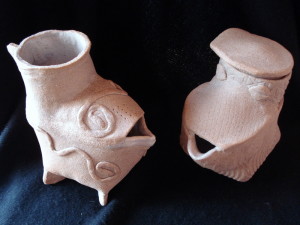Bulgarian language according to Gary

Утро. Morning. От възглавницата до мен достига (From the bed pillow beside me I hear):
Аз идеалвам
Ти идеалваш
Той /тя /То идеалва
А-conjugation, therefore:
Ние идеалваме
Вие идеалвате
Те идеалват
Imperative: Идеалвай! Идеалвайте!
Този „идеален“ глагол идеално ме събужда, особено след като научавам, че това би трябвало да означава „правя нещата идеално“. This newly-made “ideal” verb ideally awaken me. Especially, after I learned that, according to Gary, the verb means “to make things perfectly well.” Добре, скъпи. Alright, my dear. И сега? And now? Ами сега следва свършената форма на глагола. Now, the perfective aspect of the verb is forthcoming. Тя трябва да е същата като погалвам-погаля, нали? It should be exactly the same pattern as in the pair of verbs “погалвам-погаля“ (to caress, to embrace, to pet), isn’t it so? Аха, добре. Uh huh. Got it.
Аз погалвам
Ти погалваш
Той /Тя/ То погалва
Ние погалваме
Вие погалвате
Те погалват
Imperative: Погалвай! Погалвайте!
Perfective:
Аз ще (мога) да погаля
Ти ще (можеш да) погалиш
Той / Тя/ То ще (може да) погали
Ние ще (можем да) погалим
Вие ще (можете да) погалите
Те ще (могат да) погалят
Imperative: Погали! Погалете!
“Погаля” (the perfective aspect) makes also a pair with “галя“.
Аnd now, it seems it is a good time to pet one’s favorite cat. Or, maybe, one’s dearest.













